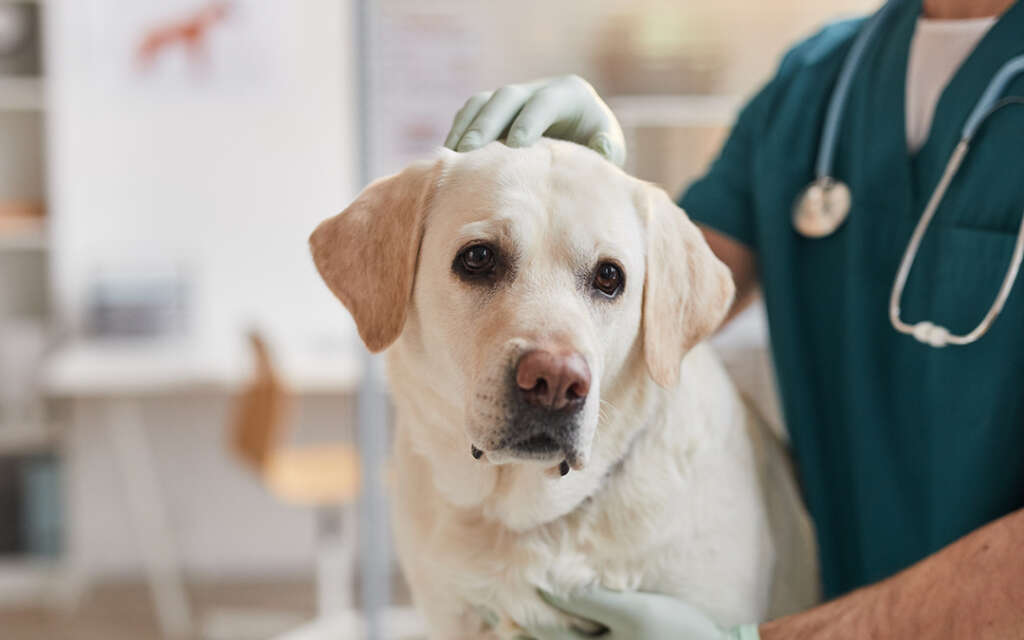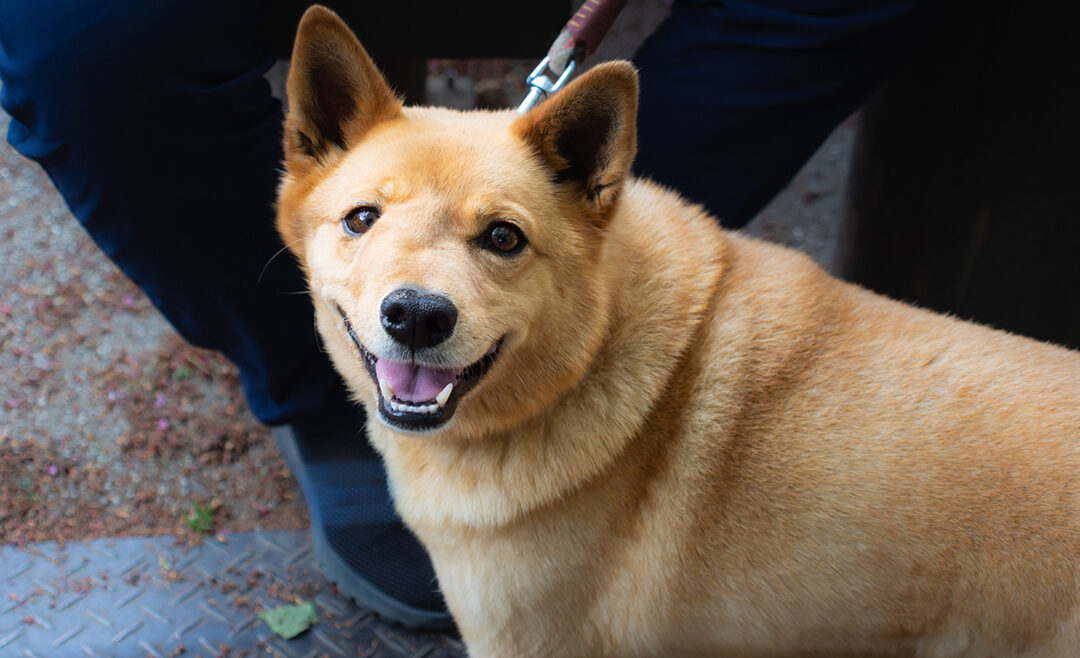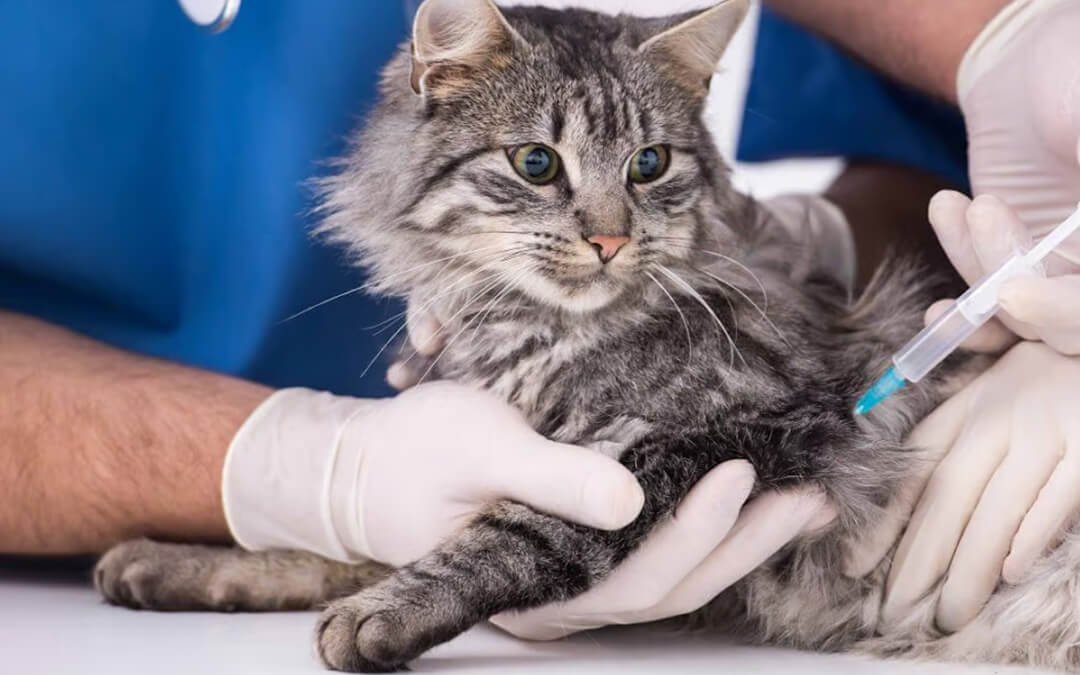Facial swelling in dogs is a common issue that can range from mild to severe. Early detection and response are crucial to ensure your dog’s health and comfort. We’ll guide you through the various causes, symptoms, and treatments for a dog with a swollen face so you know when to seek veterinary care.
Common Causes of Facial Swelling in Dogs
The most common causes of facial swelling in dogs are allergic reactions or dental problems. Facial swelling may also be an indication of underlying health problems, so it’s important to identify the cause as soon as possible to determine the proper course of treatment.
Allergic Reaction
Allergic reactions are a frequent cause of facial swelling in dogs. An allergic reaction can result from insect bites, such as bee stings, or food allergies. The inflammatory response to allergens causes the swelling and can be accompanied by itching, redness, and discomfort.
Depending on the allergin, your dog may experience mild reactions, like minor swelling and slight discomfort, or they may have severe reactions, which may include significant facial swelling, difficulty breathing, and extreme distress.
Infections
Dental infections, particularly abscesses and tooth infections, are another common cause of facial swelling. Dental health issues like tooth abscesses or oral injuries can cause significant swelling around the mouth and jaw. Other infections, such as skin infections or sinus infections, can also lead to swelling.
You can help prevent dental injuries by ensuring your dog receives regular dental care.
Less Common Causes of Facial Swelling
- Traumatic Injury: Trauma, including bites from other animals or accidents, can cause facial swelling. Injuries may lead to bruising, swelling, and even broken bones, all of which require prompt veterinary attention.
- Tumors and Growths: Your dog may also have an underlying health complication causing their face to swell, such as tumors and fluid-filled growths. While some growths may be benign, others can be malignant and require immediate treatment.
Symptoms Accompanying Facial Swelling
Dogs with facial swelling often exhibit behavioral changes such as increased irritability, lethargy, or a decreased appetite. They may paw at their face or avoid eating due to pain.
In addition to swelling, you may notice redness, heat, discharge, or a foul odor from the affected area. The skin around the swollen area may also appear reddened and irritated.
Diagnosing the Cause of Facial Swelling
The vet will perform a full physical exam and may recommend diagnostic tests such as dental X-rays or blood tests to identify the underlying issue.
Pet owners should observe their dogs closely and report any changes to the vet. Take photos of the swelling to show any progression and note any other symptoms such as changes in behavior or eating habits.
Immediate Actions to Take
If you notice your dog’s face is swollen, there are a few steps you can take at home to provide temporary relief. Apply a cold compress to the swollen area to reduce inflammation. Ensure your dog stays hydrated and comfortable. Especially in the case of allergic reactions, mild reactions tend to resolve with minimal intervention.
However, if the swelling in your dog’s face is severe, if your dog has difficulty breathing, or if the swelling is accompanied by other serious symptoms like vomiting or extreme lethargy, seek veterinary care immediately.
Treatment Options for Facial Swelling in Dogs
Treatment will depend on the cause of the swelling. For an allergic reaction or for dental problems, your vet may prescribe anti-inflammatory pain meds or antihistamines. Infections often require antibiotics, while dental issues may need oral surgery or other dental procedures.
Follow your vet’s instructions for at-home care, which may include administering prescribed medications and keeping the affected area clean. Regular follow-up appointments may be necessary to monitor your dog’s recovery.
Preventing Facial Swelling
Prevent facial swelling by minimizing your dog’s exposure to allergens and ensuring they receive regular flea and tick treatments. Keeping your home clean and free of pests can also help prevent insect bites.
Maintain your dog’s dental health with regular check-ups and cleanings. Dental issues are a common cause of facial swelling, and proactive care can prevent many problems.
Complications of Untreated Facial Swelling
Untreated facial swelling, especially if due to an infection, can spread to other parts of the body. This can lead to more serious health complications and requires prompt treatment. Chronic swelling and untreated infections can lead to long-term health issues, including systemic infections and permanent damage to the affected tissues.
Caring for a Dog with Facial Swelling
Make sure your dog stays hydrated and receives proper nutrition during recovery. Soft foods may be necessary if the swelling makes eating difficult.
Provide a comfortable and quiet environment for your dog to rest and recover. Minimize stress and avoid any activities that could exacerbate the swelling or cause discomfort.
When to See a Vet
Consult your vet if the swelling persists for more than a day, worsens, or is accompanied by other concerning symptoms. Regular veterinary check-ups can help catch potential issues early.
Routine check-ups allow your vet to monitor your dog’s overall health and catch any potential problems before they become serious.
Know When to Take a Dog Swollen Face Seriously


Facial swelling in dogs can be caused by various factors, from minor allergic reactions to serious infections or injuries. Early detection and treatment can help prevent complications. By maintaining regular veterinary care and observing your dog closely, you can ensure your canine companion stays healthy and comfortable.For more information on pet care and treatments, visit our pet treatments and urgent care pages. If you notice any signs of facial swelling in your dog, don’t hesitate to contact Modernvet for professional advice and care.




